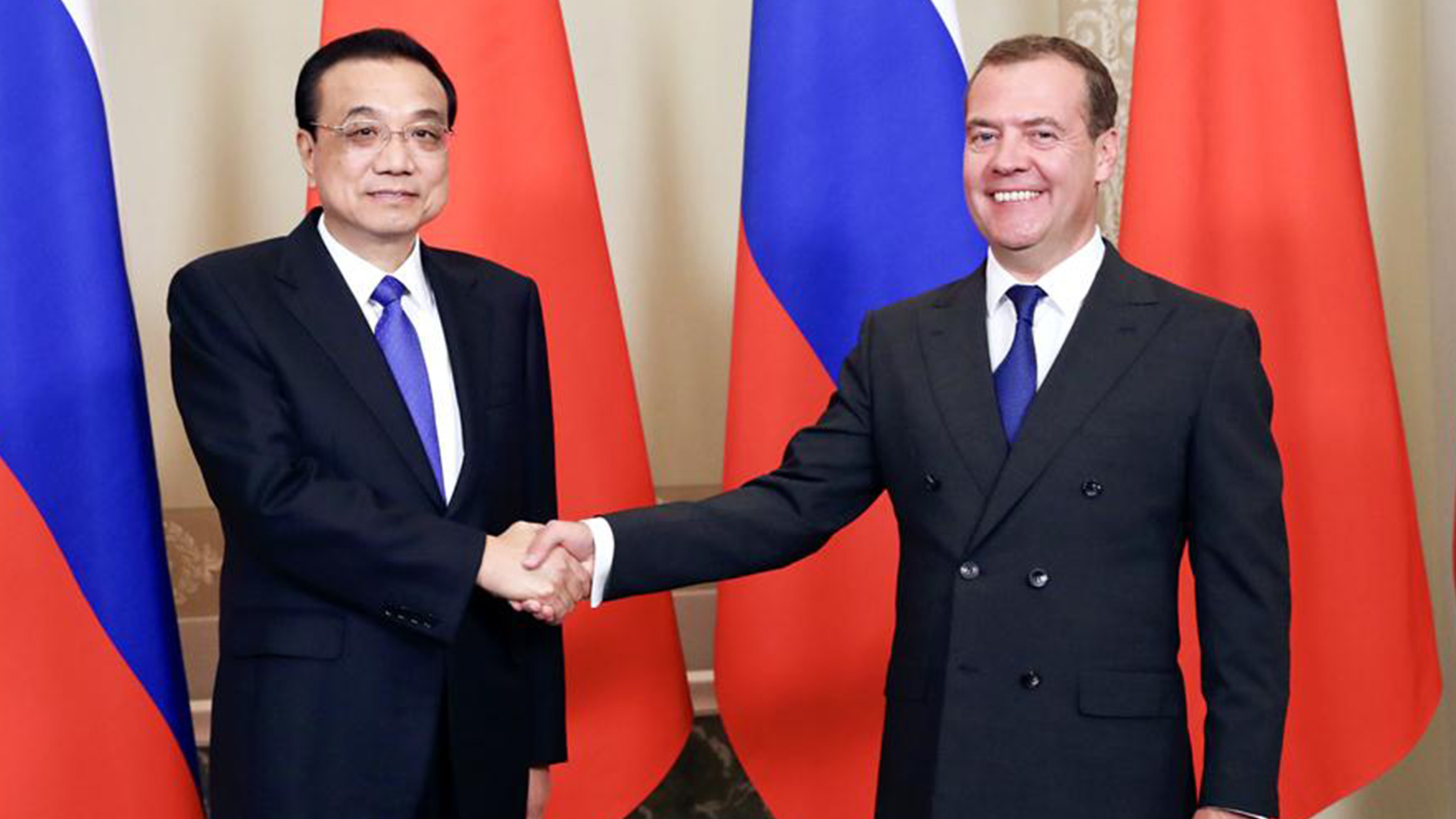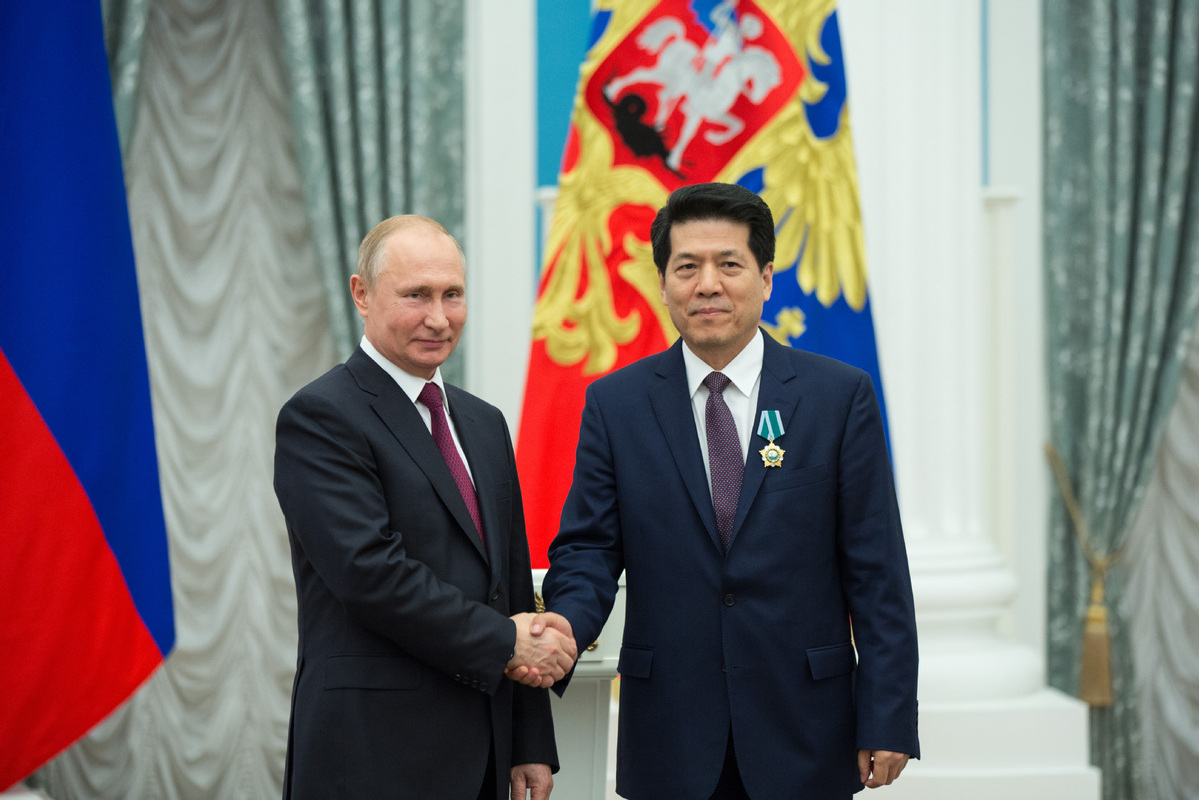
Editor's note: Artyom Lukin is an associate professor at the School of Regional and International Studies at Far Eastern Federal University in Vladivostok. The article reflects the author's opinion, and not necessarily the views of CGTN.
On October 1, 1949, the People's Republic of China was proclaimed. The next day, October 2, the then Soviet Union became the first state to recognize a new republic and establish diplomatic relations with it. This year marks the 70th anniversary of those historical events. Yet we should not forget about another anniversary – that of the Treaty of Nerchinsk, which was concluded by China and Russia 330 years ago, in 1689.
This treaty, for the first time, drew a border and opened trade between the two empires. In it, the sides treated each other as equals. The Treaty of Nerchinsk reminds us that Russia-China state-to-state relations date back centuries. This bilateral relationship of two giant neighboring states has been complex, sometimes descending into crises and border standoffs. That said, the two nations have never fought a major war against each other.
The elites of the two countries have learned lessons from history, especially from the 30-year-long Sino-Soviet split that lasted from the late 1950s to the 1980s. Moscow and Beijing are determined to maintain good-neighborly relations. Over the last three decades, they have consistently strengthened mutual ties. More than just being good neighbors, they are now strategic partners, recently upgrading their relations to "a comprehensive strategic partnership of coordination for a new era." The China-Russia relationship is definitely evolving toward closer geopolitical and geo-economic cooperation.
Since 2010, China has been Russia's top trading partner. In 2018, Russia-China trade for the first time exceeded 100 billion U.S. dollars threshold, reaching 107 billion U.S. dollars. 2019 is on track to set another trading record.

The first Sino-Russian cross-border highway bridge. /VCG Photo
The first Sino-Russian cross-border highway bridge. /VCG Photo
Besides, albeit slowly, Russia's and China's financial systems are becoming increasingly integrated. In 2018, Russia's Central Bank increased its Chinese holdings from 2.6 to 14.1 percent. In June this year, Moscow and Beijing signed an agreement to accelerate the settlement of bilateral transactions in national currencies, the yuan, and the ruble. One of the objectives of such moves is to reduce dependence on the U.S. dollar.
In the political realm, China and Russia have demonstrated close diplomatic coordination, both on global issues and in regional dimensions, such as on the Korean Peninsula and in the Middle East. Military-strategic cooperation has also been on the rise.
Sino-Russian cooperation is often dismissed because, in such an arrangement, Russia would be a dependent and hence resentful partner. There is no denying the disparity in the economic weights of China and Russia. However, economic asymmetry is not the same as political subordination. As long as Russia keeps a great-power mindset and maintains a strong military force, complete with formidable nuclear arsenals, it will not be junior to China politically. After all, Russia has been Europe's resource periphery for centuries while acting politically as a great power.
After a long period of denial, Western strategists now recognize the growing cooperation of Beijing and Moscow. As one way to deal with it, a recent Pentagon-commissioned white paper suggests the U.S. should "foster distrust and unease between the Russian Federation and China."

Russian President Vladimir Putin (L) presents the Order of Friendship to the then Chinese Ambassador to Russia Li Hui in the Kremlin, May 23, 2019. /Xinhua Photo
Russian President Vladimir Putin (L) presents the Order of Friendship to the then Chinese Ambassador to Russia Li Hui in the Kremlin, May 23, 2019. /Xinhua Photo
Such recommendations sound extremely naïve. Russia and China are coming together by the most elementary law of international politics: that of the balance of power. As long as Russia and China perceive the U.S. as the threatening force, driving a wedge between the two would be a fool's errand.
In the future course of Russia-China relations, much will depend on societal attitudes and perceptions of each other. In Russia, there are still pockets of Sinophobia. There are some in the Russian elites who are wary of China, as the former mayor of Moscow Yuri Luzhkov.
But, from my personal experience, fear and distrust of China are mostly limited to older generations, perhaps being the legacy of the Sino-Soviet confrontation. Young people are more open-minded about China and tend to see its rise as an opportunity, rather than a threat. And, unlike their parents and grandparents, they have never carried the Soviet superiority complex toward a "backward China." The Russian youngsters can admire the economic and technological achievements of modern China without anguished comparisons with the former Soviet superpower.
It remains to be seen whether contemporary Chinese youngsters develop a superiority complex of their own. For, if they do, it may eventually cause friction in China's relations with Russia – and other countries. Hopefully, the lessons from the China-Russia mutual history will still be remembered by future leaders in Beijing and Moscow.
(If you want to contribute and have specific expertise, please contact us at opinions@cgtn.com.)